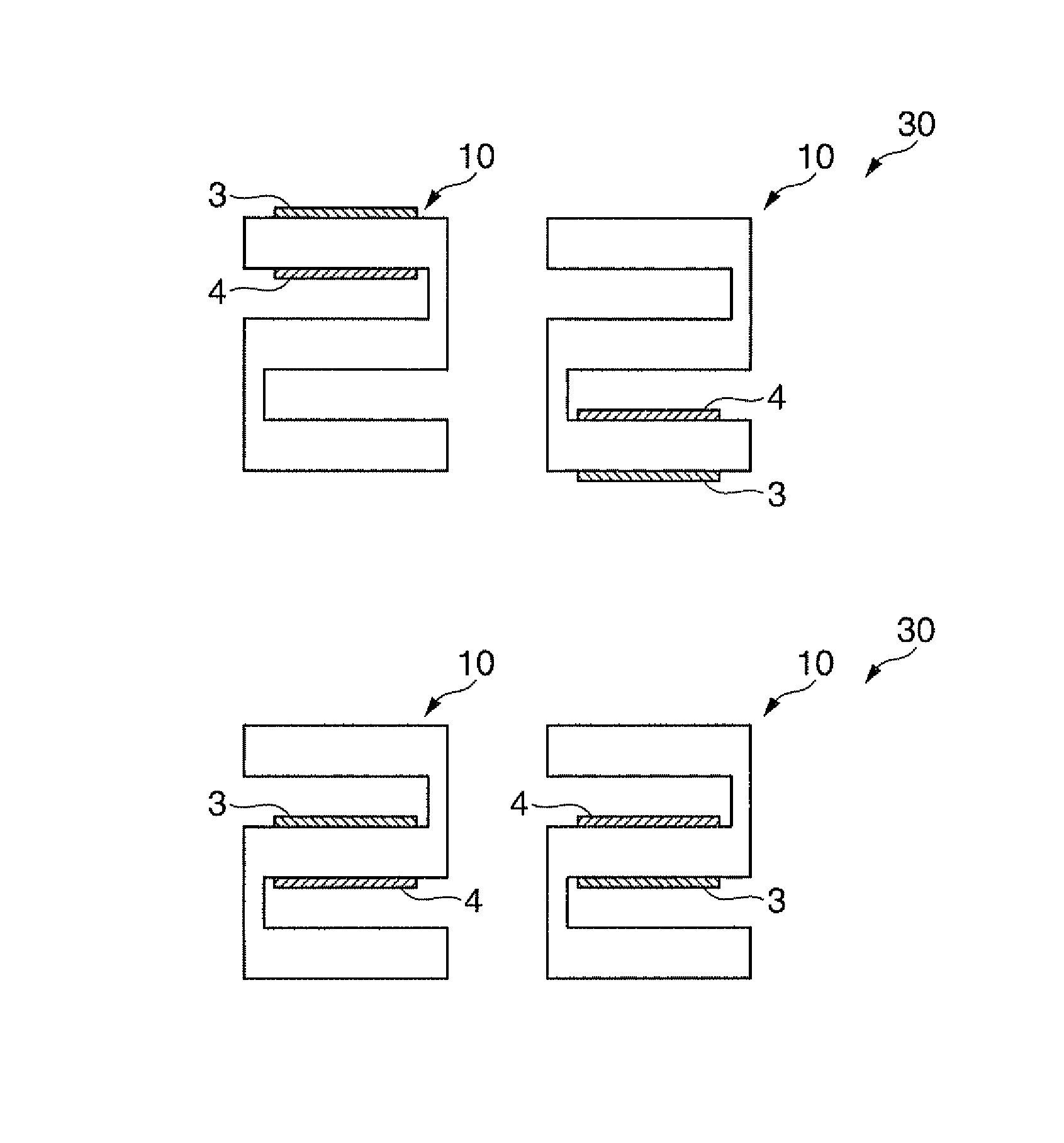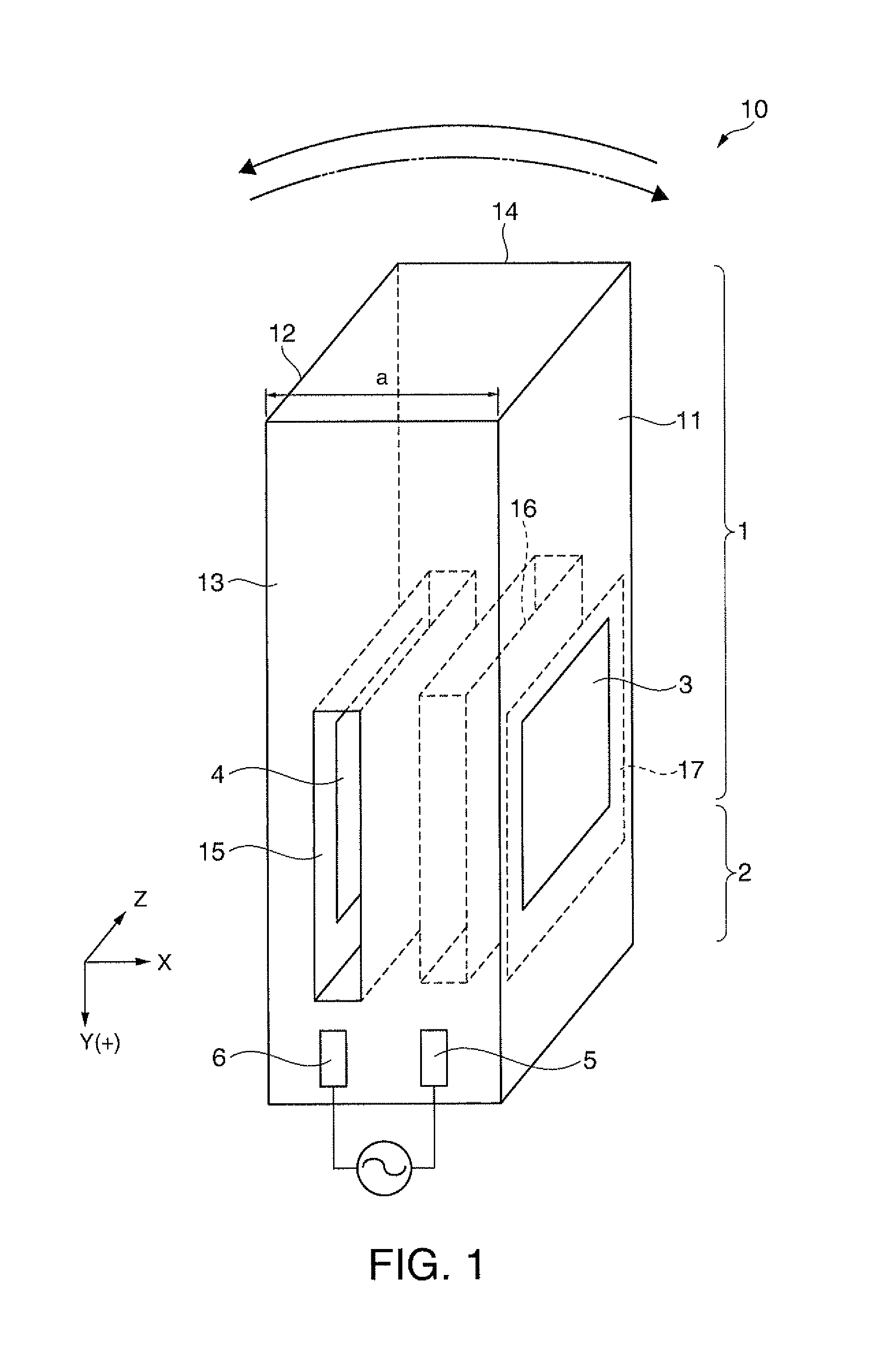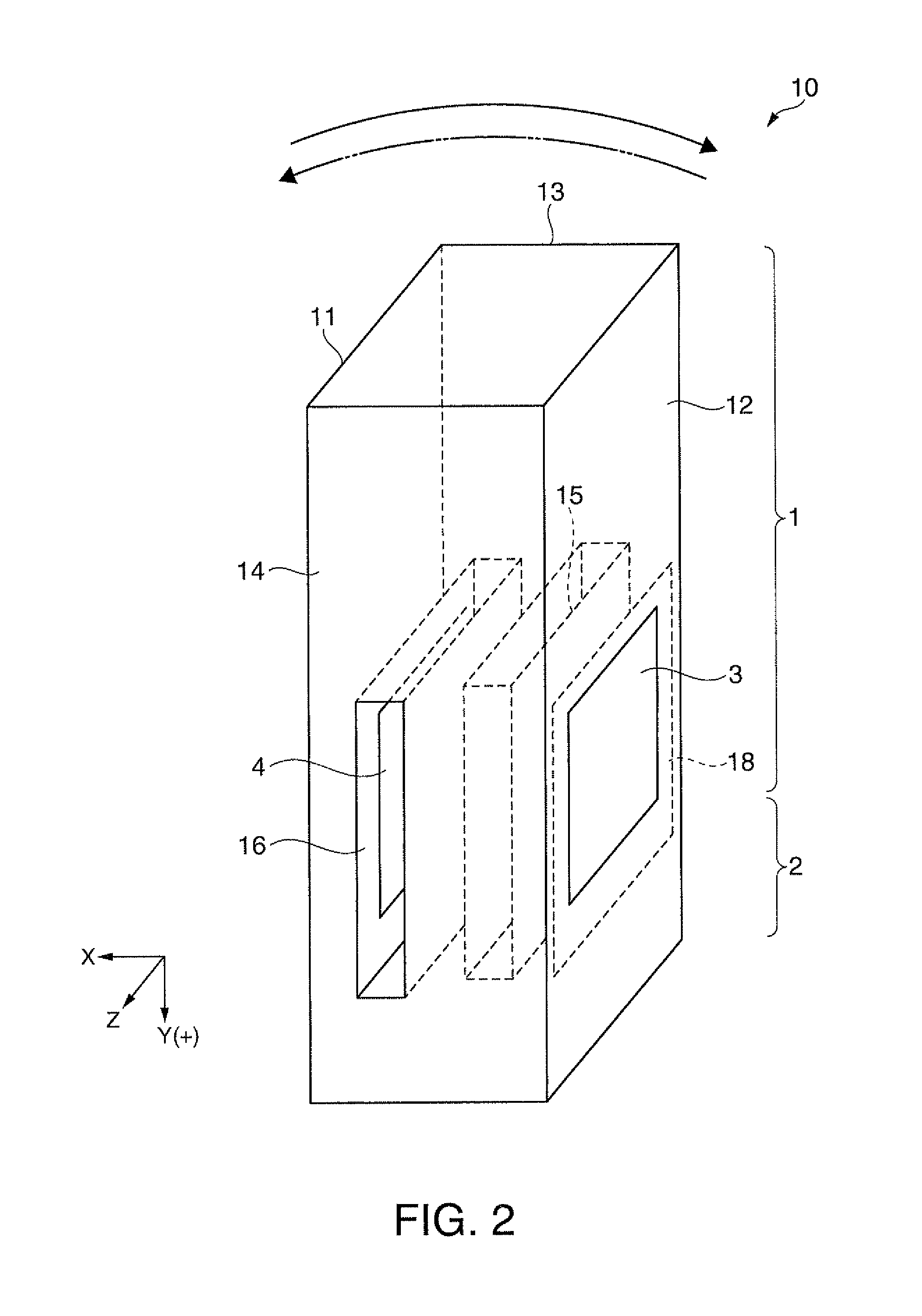Flexural vibrating reed, flexural vibrator, and piezoelectric device
a flexural vibrating reed and flexural vibrating technology, which is applied in the direction of oscillation generators, solid-state devices, generators/motors, etc., can solve the problems of reducing the q value of the flexural vibrating reed, affecting the flexural vibration, etc., to prevent the reduction of the q value, and significantly degrade the flexural vibration portion.
- Summary
- Abstract
- Description
- Claims
- Application Information
AI Technical Summary
Benefits of technology
Problems solved by technology
Method used
Image
Examples
first embodiment
[0044]Hereinafter, a first embodiment will be described with reference to FIGS. 1 to 4.
[0045]FIG. 1 is a schematic perspective view illustrating a crystal vibrating reed 10 according to the first embodiment. FIG. 2 is a schematic perspective view illustrating the crystal vibrating reed 10 illustrated in FIG. 1 as seen from a direction rotated by 180° about the Y axis. FIG. 3 is a Z-X schematic cross-sectional view as seen from the Y(+) direction of FIGS. 1 and 2 and is a schematic wiring diagram. FIG. 4 is a graph showing Q dependency of flexural vibrating reeds (crystal vibrating reed) on f / fm and is a graph showing a comparison in cross-sectional shapes of flexural vibrating portions.
[0046]As illustrated in FIGS. 1 and 2, the crystal vibrating reed 10 includes a flexural vibrating portion 1 which is a vibrating portion, a base 2, excitation electrodes 3 and 4, and fixed electrodes 5 and 6. The crystal vibrating reed 10 includes a first surface 11 which is a third principal surface...
second embodiment
[0076]Hereinafter, a second embodiment will be described with reference to FIGS. 5 to 7.
[0077]FIG. 5 is a schematic perspective view illustrating a crystal vibrating reed 20 according to a second embodiment. FIGS. 6 and 7 are Z-X schematic cross-sectional views as seen from the Y(+) direction of FIG. 5, and are schematic wiring diagrams.
[0078]The crystal vibrating reed 20 illustrated in FIG. 5 includes two crystal vibrating reeds 10 of the first embodiment illustrated in FIGS. 1 and 2. Accordingly, like elements are denoted by like reference numerals, and description of the configuration will be omitted. Here, the shapes and arrangement illustrated in FIG. 3(a) are exemplified for the description of the flexural vibrating portion 1 which is the vibrating portion, the excitation electrodes 3 and 4, and the base 2.
[0079]As illustrated in FIG. 5, the crystal vibrating reed 20 includes two crystal vibrating reeds 10 each including the flexural vibrating portion 1 which is the vibrating ...
modified example 1
[0083]FIG. 6(b) illustrates a modified example of the second embodiment related to the first and second grooves and 16 illustrated in FIG. 6(a). FIG. 6(b) is different from FIG. 6(a) in the arrangement of the first and second grooves 15 and 16 of the other flexural vibrating portion 1 illustrated on the right in FIG. 6(b). That is, the first groove 15 provided in the third surface 13 which is the first principal surface is disposed to oppose the first surface 11, and the second groove 16 provided in the fourth surface 14 which is the second principal surface is disposed to oppose the second surface 12.
[0084]The arrangement and wiring of the one flexural vibrating portion 1, the base 2, and the two pairs of the excitation electrodes 3 and 4 illustrated on the left are as illustrated in FIG. 6(a). In addition, as in FIG. 6(a), an alternating current flows between the excitation electrodes 3 and 4. Accordingly, in the flexural vibrating portion 1, flexural vibration indicated by the so...
PUM
 Login to View More
Login to View More Abstract
Description
Claims
Application Information
 Login to View More
Login to View More - R&D
- Intellectual Property
- Life Sciences
- Materials
- Tech Scout
- Unparalleled Data Quality
- Higher Quality Content
- 60% Fewer Hallucinations
Browse by: Latest US Patents, China's latest patents, Technical Efficacy Thesaurus, Application Domain, Technology Topic, Popular Technical Reports.
© 2025 PatSnap. All rights reserved.Legal|Privacy policy|Modern Slavery Act Transparency Statement|Sitemap|About US| Contact US: help@patsnap.com



